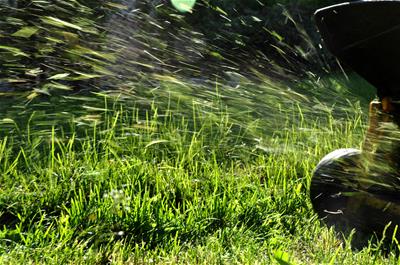TSAOG orthopedic surgeon Dr. Ronald W. Connor was recently interviewed by WOAI’s Jim Forsyth regarding lawn mower safety. Tune in to WOAI Radio all day today to catch the full interview.


TSAOG orthopedic surgeon Dr. Ronald W. Connor was recently interviewed by WOAI’s Jim Forsyth regarding lawn mower safety. Tune in to WOAI Radio all day today to catch the full interview.

So you’ve been bitten by an animal? It can happen in an instant. You’re playing tug of war with your dog and get nipped. Your cat gets scared at the vet and bites to get away. Maybe it’s true aggression. Sometimes it’s your pet, sometimes it’s someone else’s, and sometimes it’s a wild animal.
In any case, you need to know what to do to avoid some serious consequences. I sat down with TSAOG hand and wrist specialist Dr. Stephen C. Drukker to find out what to do when you’ve been bitten by an animal.
What is my first step if I have been bitten by an animal?
First thing’s first. Any time you are bitten by a mammal (cat, dog, bat, etc), rabies is a concern. All animal bites should be reported to animal control as they will want to quarantine the animal for 10 days to watch for signs of rabies.
If the animal is not contained (if it is wild or a domestic animal that bit and ran away) and cannot be observed, you should seek medical attention immediately to have the wound cleaned and dressed and to begin receiving rabies vaccinations. The CDC recommends that people who have been exposed receive a series of 4 rabies vaccine shots over 2 weeks following the bite, exactly what happened to Manu Ginobili following the “bat incident” a few years ago.
Remember, rabies is 99%+ treatable with a vaccine, but 99%+ fatal if you wait for symptoms to appear.
What can I do at home for an animal bite?
At home, you want to perform basic first aid. Wash the wound with warm, soapy water, apply antibiotic ointment, and dress the wound. Then, watch carefully for signs of infection.
How do I know if I need to see a doctor for an animal bite?
Again, if the animal is not contained and rabies is a concern, you should seek medical attention immediately. If rabies is not a concern, other signs that you should seek medical attention immediately include:
If these do not apply, you can observe the wound at home and watch for signs of infection.
What are the signs of infection?
If you notice increasing pain, redness, or swelling, these are signs of infection and you should see a doctor.
What will the doctor do for my bite wound?
Generally, a physician will open, clean, and dress the wound and prescribe antibiotics. If you do not see improvement within 12-24 hours after starting antibiotics, you should contact your physician for a recheck.
If rabies is not a possibility, how bad could an animal bite be?
Bad. If not treated quickly, severe infections are common in cases of animal bites, whether they are wild animals or beloved pets. Severe infections can lead to lose of tissue (necrosis) as well as loss of function. In these cases, surgical drainage and treatment can be required.
Infection can set in and become severe very quickly following an animal bite. The best advice I can give is that if you see any sign of infection following an animal bite, don’t wait to seek medical attention and you may avoid some serious and lasting consequences.
Dr. Stephen C. Drukker is a board certified hand surgeon with The San Antonio Orthopaedic Group. He treats patients of all ages for conditions of the hand, wrist, and elbow. If you’d like to schedule an appointment with Dr. Drukker, please call 210.281.9595.

When our patients have something nice to say about us, we like to brag about it! Please enjoy some of the highlights from TSAOG’s May 2014 Customer Survey: